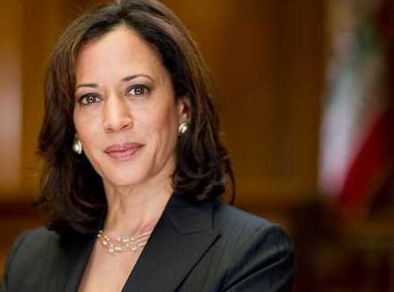Published: 10 April 2013
Region: US
by Aidan White


Speaking at a fund-raising event at which he talked about his friend Kamala Harris, the California Attorney General, Obama is reported to have said:
“You have to be careful to, first of all, say she is brilliant and she is dedicated and she is tough, and she is exactly what you’d want in anybody who is administering the law, and making sure that everybody is getting a fair shake. She also happens to be by far the best-looking attorney general in the country ….”
His final remark was greeted with good humour by the audience with no complaints from Ms Harris, a good friend of the Obamas. But the President apologised later when he was taken to task on Twitter feeds and by media commentators and leading feminists.
Some journalists, like Roxanne Jones, a distinguished sports editor and a former vice president at the sports network ESPN, were unfazed by the controversy. A leading commentator and award winner on sports, entertainment and women’s issues, she says the incident is overblown. She would have taken the compliment and without apology.
Others disagree. Amanda Marcotte writing in Slate says the anger sparked by Obama’s comment is valid and the apology justified. She argues that even “benevolent” compliments reinforce the idea that women have secondary status in society.
Across the media argument has raged over whether he was right to apologise and whether or not his comment was sexist in the first place.
To understand the questions it is important to note that in this case context is everything. This was a kindly comment within amiable company and was by no means threatening. Importantly, it was prefaced by a strong statement about Harris’s qualities as a leading lawyer.
Even so, this was not a private function. Here was the President, in public, passing a judgement on a public official and highlighting her good looks. Friendly or not, he should never have given the impression that women can be judged by their appearance not least because it could encourage more unsolicited attention for women in public and in the workplace.
Naturally, Obama, a man with a remarkable talent for neat political footwork, is even-handed in these matters. He is on record making similar remarks about male colleagues, but he should have known that even an innocent word set in the context of a culture of sexism in politics and public affairs is deeply offensive to those campaigning for change, equality and respect for women. My own view is that Obama was right to clear this out of the way, to make his apology and move on.
There are many things for which he can be rightly criticised by journalists. His administration has been disgraceful, for instance, in its pursuit of whistleblowers (particularly Bradley Manning the unfortunate soldier currently on trial for helping WikiLeaks) and the United States is a more secret society as a result.
But Obama is no sexist. His record in office – particularly appointing women to senior positions and taking up equal pay issues is a testament to that. He made a mistake here and a minor one at that; of much more concern should be the many thousands of cases of abusive men in public life who exploit, bully and humiliate women as a matter of routine. Among the worst are predators like Dominique Strauss Kahn and Silvio Berlusconi.
Obama is in a different league. By apologising he does the right thing and shows that he takes the issue of sexism in public life seriously. It would be comforting to think that media, where sexist stereotyping is rampant, might learn something from his approach but that’s most unlikely given the double standards at play in media reporting of the incident.